The Quran, the divine revelation from Allah (SWT), is a beacon of light for Muslims seeking healing and happiness. Described as “a healing and a mercy to the believers” (Surah Al-Isra 17:82), its verses offer profound duas (supplications) that soothe the heart, mend the body, and uplift the soul. In a world filled with stress, illness, and emotional turmoil, the Quran’s duas provide a spiritual remedy, guiding us toward inner peace and lasting joy. This comprehensive guide reveals the most powerful Quranic verses for healing and happiness, sharing ten transformative duas to help you overcome life’s challenges and embrace a life of contentment.
These duas, rooted in the stories of prophets and the wisdom of Allah’s words, are not just prayers but divine tools for physical, emotional, and spiritual restoration. By reciting them with sincerity, you can invite Allah’s mercy into your life, finding relief from pain and a renewed sense of purpose. This article explores each dua in depth, offering Arabic text, transliteration, translations, and practical tips to make them part of your daily routine. Whether you’re battling health issues, seeking emotional balance, or yearning for happiness, the Quran’s verses hold the key to your healing journey.

Introduction: The Quran as a Source of Healing and Happiness
The Quran is a timeless guide, offering solutions to every human struggle. Allah (SWT) declares, “We send down of the Quran that which is healing and mercy for the believers” (Surah Al-Isra 17:82). Its duas—supplications directly from Allah’s words—are among its greatest gifts, providing comfort, hope, and joy. The Prophet Muhammad (PBUH) emphasized the power of dua, saying, “Dua is the essence of worship” (Tirmidhi). These divine prayers connect us to Allah’s infinite mercy, addressing physical ailments, emotional wounds, and spiritual voids.
In today’s fast-paced world, where anxiety, depression, and health challenges are prevalent, the Quran’s duas offer a path to healing and happiness. They remind us that true contentment comes from faith, gratitude, and reliance on Allah (SWT). This article uncovers ten powerful Quranic duas for healing and happiness, explaining their significance, benefits, and practical applications. You’ll also find recitation tips, recommended resources, and real-life stories to inspire your journey. Start now, and let the Quran’s verses transform your life.
Here’s what you’ll discover:
- Ten powerful Quranic duas with Arabic text, transliteration, and English translations.
- How each dua promotes healing (physical/emotional) and happiness.
- Practical tips to incorporate these duas into your daily life.
- Curated resources—books, apps, and courses—with prices, reviews, and ratings.
- Stories and FAQs to deepen your trust in Allah’s healing power.
Let’s dive into the Quran’s most powerful verses and unlock their miracles for healing and happiness.
Why the Quran’s Duas Are Essential for Healing and Happiness
A Divine Prescription for the Soul
The Quran’s duas are direct communications with Allah (SWT), carrying His promise to respond: “Call upon Me; I will respond to you” (Surah Ghafir 40:60). These supplications, revealed to prophets and believers, are tailored to human needs—physical healing, emotional peace, and spiritual joy. By reciting them, you align your heart with Allah’s will, inviting His mercy to mend what is broken.
Physical and Emotional Healing
The Quran’s healing power extends to both body and mind. Verses like those in Surah Ash-Sharh (94:5-6) remind us, “Indeed, with hardship [will be] ease.” Reciting duas has a calming effect, reducing stress and fostering resilience. Research on prayer shows that spiritual practices lower cortisol levels, improve mood, and enhance overall well-being. For Muslims, Quranic duas combine this psychological benefit with divine intervention, making them a holistic remedy.
The Path to True Happiness
Happiness in Islam is rooted in gratitude, faith, and closeness to Allah. The Quran teaches, “Indeed, in the remembrance of Allah do hearts find rest” (Surah Ar-Ra’d 13:28). Duas for gratitude and contentment shift your focus from worldly desires to divine blessings, fostering lasting joy. They help you navigate life’s ups and downs with optimism and trust in Allah’s plan.
Read more:
10 Powerful Quranic Duas for Healing and Happiness
Below are ten carefully selected duas from the Quran, each addressing aspects of healing (physical/emotional) and happiness. You’ll find the Arabic text, transliteration, English translation, and guidance on their application.
1. Dua for Healing (Surah Al-Anbiya 21:83)
Purpose: Physical and emotional healing.
Arabic:
أَنِّي مَسَّنِيَ ٱلضُّرُّ وَأَنتَ أَرْحَمُ ٱلرَّٰحِمِينَ
Transliteration:
Anni massaniyad-durru wa anta arhamur-rahimin.
Translation:
“Indeed, adversity has touched me, and You are the Most Merciful of the merciful.”
When to Recite:
- During illness or mental health struggles.
- When praying for recovery or emotional relief.
Significance: Recited by Prophet Ayyub (AS) during his trials of illness and loss, this dua led to his miraculous recovery.
How It Promotes Healing and Happiness:
- Healing: Appeals to Allah’s mercy, promoting physical and emotional recovery.
- Happiness: Instills hope, reminding you of Allah’s compassion.
Practical Application: Recite this dua while seeking medical treatment or practicing self-care, trusting in Allah’s healing power.
2. Dua for Emotional Peace (Surah Taha 20:25-26)
Purpose: Relief from anxiety and stress.
Arabic:
رَبِّ اشْرَحْ لِي صَدْرِي وَيَسِّرْ لِي أَمْرِي
Transliteration:
Rabbishrah li sadri wa yassir li amri.
Translation:
“My Lord, expand for me my breast [with assurance] and ease for me my task.”
When to Recite:
- During moments of anxiety or overwhelm.
- Before stressful events, like exams or conflicts.
Significance: Prophet Musa (AS) recited this dua before confronting Pharaoh, seeking calmness and ease.
How It Promotes Healing and Happiness:
- Healing: Calms the heart, reducing emotional distress.
- Happiness: Brings confidence and clarity, fostering inner peace.
Practical Application: Recite this dua with deep breathing to manage stress during challenging moments.
3. Dua for Happiness and Contentment (Surah Ibrahim 14:7)
Purpose: Cultivating gratitude and joy.
Arabic:
وَإِذْ تَأَذَّنَ رَبُّكُمْ لَئِنْ شَكَرْتُمْ لَأَزِيدَنَّكُمْ ۖ وَلَئِنْ كَفَرْتُمْ إِنَّ عَذَابِي لَشَدِيدٌ
Transliteration:
Wa idh ta’adhana rabbukum la’in shakartum la’azidannakum wa la’in kafartum inna ‘adhabi lashadid.
Translation:
“And [remember] when your Lord proclaimed, ‘If you are grateful, I will surely increase you [in favor]; but if you deny, indeed, My punishment is severe.’”
When to Recite:
- Daily to foster gratitude.
- When feeling discontent or envious.
Significance: This verse emphasizes gratitude as a dua that attracts more blessings.
How It Promotes Healing and Happiness:
- Healing: Shifts focus from negativity, healing emotional wounds.
- Happiness: Cultivates joy by appreciating Allah’s blessings.
Practical Application: Recite this dua while listing three things you’re grateful for each day.
4. Dua for Protection and Peace (Ayat al-Kursi, Surah Al-Baqarah 2:255)
Purpose: Protection from harm and emotional security.
Arabic:
ٱللَّهُ لَآ إِلَٰهَ إِلَّا هُوَ ٱلْحَىُّ ٱلْقَيُّومُ ۚ لَا تَأْخُذُهُۥ سِنَةٌ وَلَا نَوْمٌ ۚ لَهُۥ مَا فِى ٱلسَّمَٰوَٰتِ وَمَا فِى ٱلْأَرْضِ ۗ مَن ذَا ٱلَّذِى يَشْفَعُ عِنْدَهُۥٓ إِلَّا بِإِذْنِهِۦ ۚ يَعْلَمُ مَا بَيْنَ أَيْدِيهِمْ وَمَا خَلْفَهُمْ ۖ وَلَا يُحِيطُونَ بِشَىْءٍ مِّنْ عِلْمِهِۦٓ إِلَّا بِمَا شَآءَ ۚ وَسِعَ كُرْسِيُّهُ ٱلسَّمَٰوَٰتِ وَٱلْأَرْضَ ۖ وَلَا يَـُٔودُهُۥ حِفْظُهُمَا ۚ وَهُوَ ٱلْعَلِىُّ ٱلْعَظِيمُ
Transliteration:
Allahu la ilaha illa huwal-hayyul-qayyum, la ta’khudhuhu sinatun wa la nawm, lahu ma fis-samawati wa ma fil-ard, man dhal-ladhi yashfa‘u ‘indahu illa bi’idhnih, ya‘lamu ma bayna aydihim wa ma khalfahum, wa la yuhituna bi shay’im min ‘ilmihi


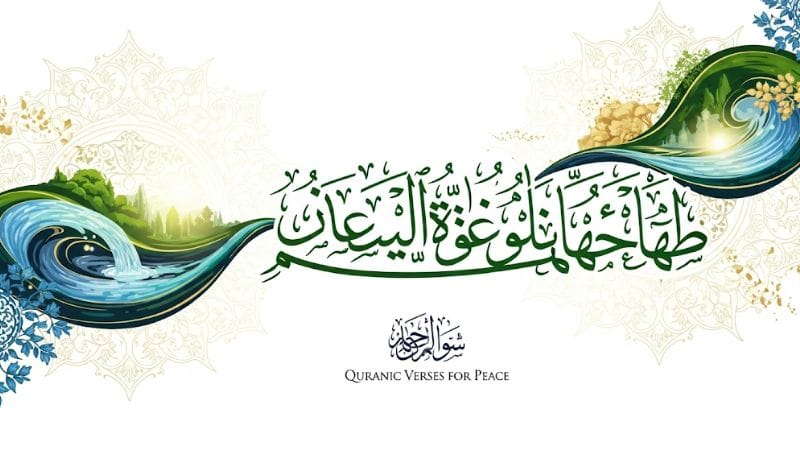
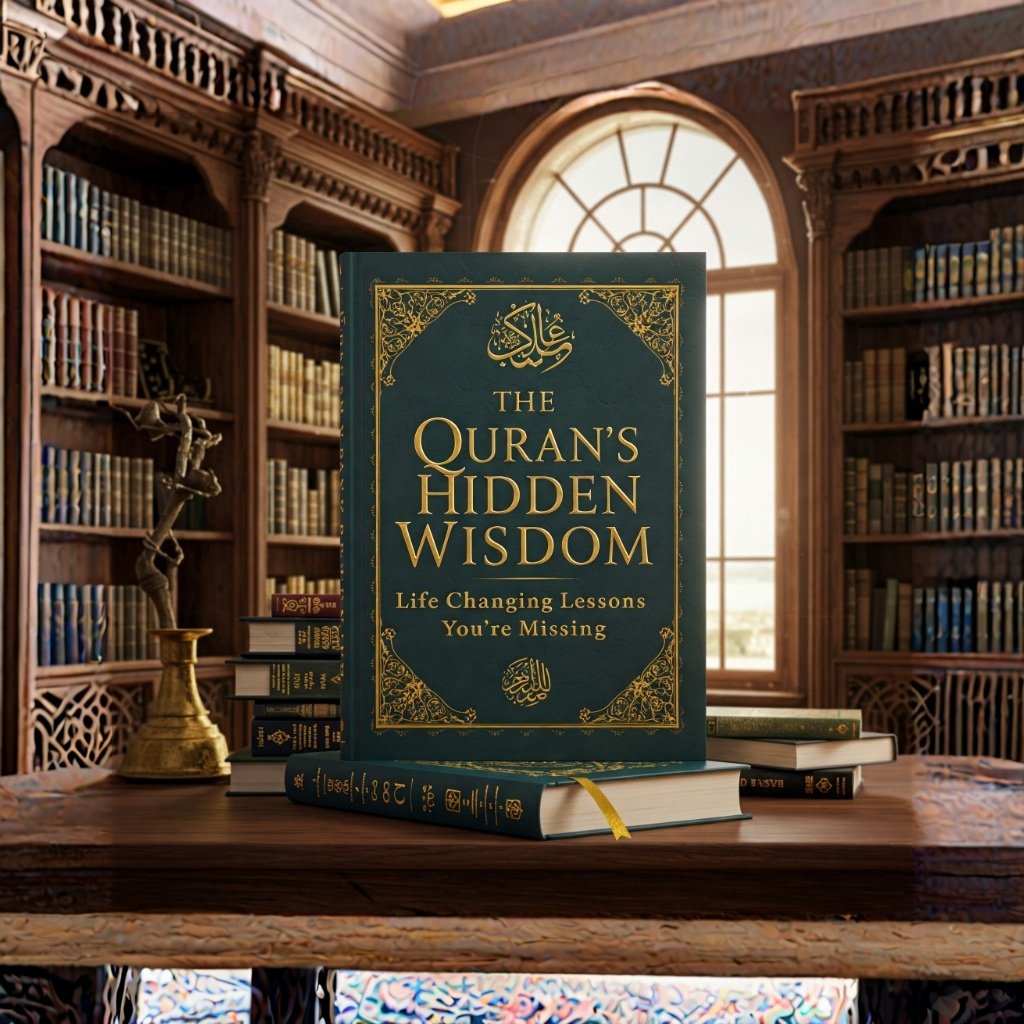


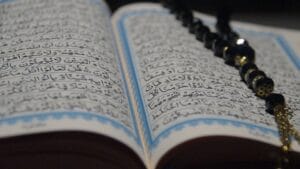

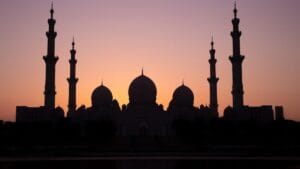
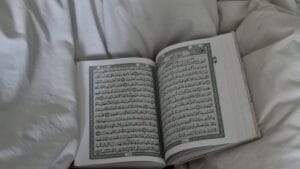

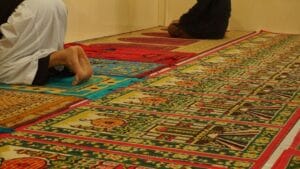

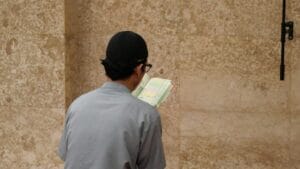
Post Comment